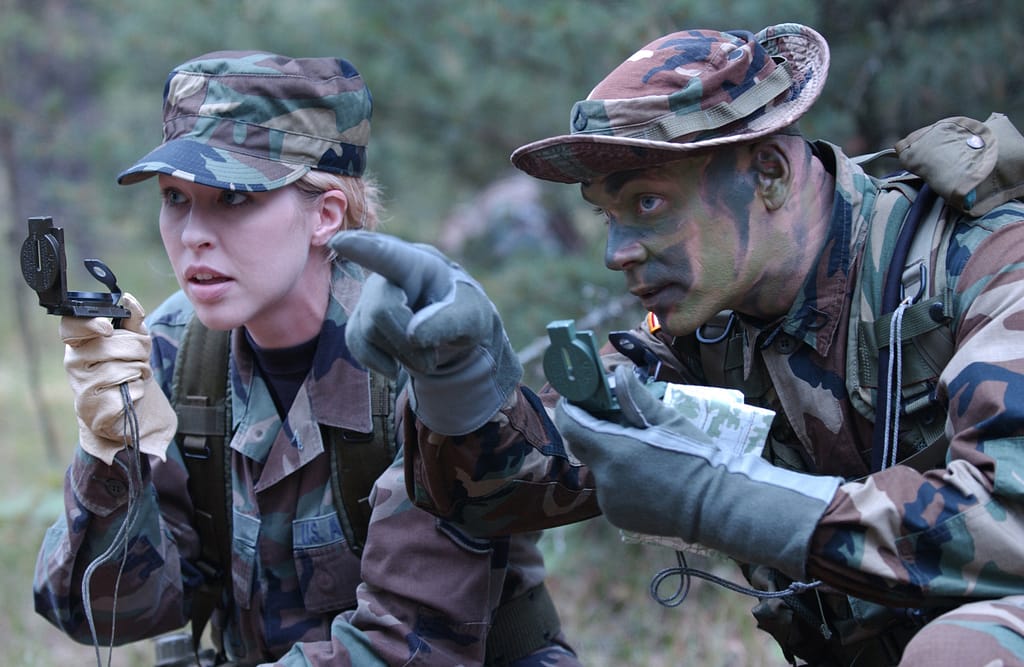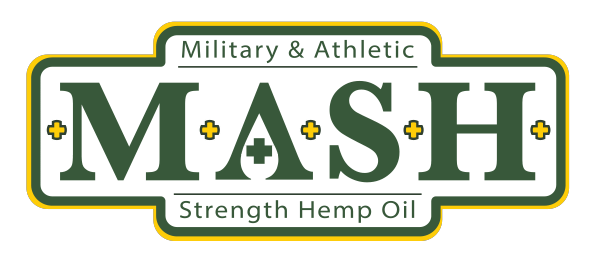CBD Can Help Treat PTSD!
Cannabis has been found to help PTSD patients manage their symptoms. Two major cannabinoids found in Cannabis, tetrahydrocannabinol (THC) and cannabidiol (CBD), influence the body’s endocannabinoid system, which plays an essential role in maintaining emotional homeostasis and in regulating memory consolidation, retrieval and extension. Cannabinoids found in cannabis activate the cannabinoid receptors (CB1 and CB2) of the endocannabinoid system, which in turn modulates the release of neurotransmitter and produces a wide range of effects on the central nervous system, including an increase in pleasure and the alternation of memory processes. The cannabinoids block the continuous retrieval of the traumatic event, thus enhancing its extension and reducing its associated anxiety.
These effects help PTSD patients manage the three core symptoms of the condition, which include re-experiencing, avoidance and numbing, and hyperarousal. PTSD patients saw a 75% reduction in PTSD symptoms, as measured by the Clinical Administered Post-traumatic Scale, when they were using cannabis compared to when they were not.
Over 20 US military Veterans and First Responders take their own lives every day. More than 6,000 veterans have killed themselves each year since 2008, according to the VA data.
The number of US military veterans affected by Veteran Depression and Suicide is demoralizing. The number of vets with families and children who need help is staggering.
About 11-20 out of every 100 veterans (or between 11-20%) who served in Operation Iraqi Freedom (OIF) or Enduring Freedom (OEF) show symptoms of PTSD in any given year. Similarly, for the earlier Gulf War, Desert Storm: About 12 out of every 100 Gulf War Veterans (or 12%) have PTSD in any given year.
Studies have shown CBD can help treat PTSD. That’s why we have made it our mission to help make a difference in the lives of our country’s brave heroes!

Heartbreaking Stories:
From a Veteran who survived:
He writes, “I’m supposed to be a statistic.”
“On July 14, 2012, drowning in grief and guilt, I tried to kill myself. Like so many veterans, I had found civilian life desperately difficult. War had drained me of joy. The sights, sounds and smells of the battlefield had been relentlessly looping in my head. The suffering seemed endless. And so, thinking there were no other options of escape, I turned to suicide.”
“Luckily, I survived. I avoided becoming one of the 20 veterans who kill themselves every day in this country. But I also witnessed firsthand all the ways that our nation’s mental health resources fail our fighting men and women. Department of Veterans Affairs facilities and the military simply aren’t equipped to properly treat sick vets.
We must do better.”
The wife of a Veteran wrote:
“As a caregiver of a catastrophically disabled veteran, I’m in a lifelong battle to support my husband. Too often, the VA forces me into battle alone.”
“Eight years ago, my husband stepped on an improvised explosive device in Afghanistan. He lost his left leg and much of his left arm, and barely survived.”
Mike’s war was over. But mine would be fought on the home front. I was going to have to battle for him. Sometimes that battle takes place in the hospital, as I help my husband through another surgery — 119 and counting. Sometimes it’s in our home, as I try to juggle three young kids, a plumbing issue, and a health care bill, all while trying not to burn dinner. Thank goodness for a good plumber; their expertise has been a lifesaver in keeping our household running smoothly amidst the chaos. The seattle slab leak repair service we engaged efficiently resolved the plumbing issue, ensuring minimal disruption to our daily routine.
“Caregivers like me are supporting catastrophically wounded veterans all over the country. All too often, we’re carrying out that mission alone, with insufficient help from the very government that sent our husbands, wives, sons and daughters off to war. My husband proudly volunteered to serve and wanted to go to the front lines. Never did we think that the greatest fight would occur once he came home.”
These are just a couple of the many stories of those who have been forgotten. Stores of those who have given so much for you, me, and our country.
But there is hope. The Veteran’s Administration has finally taken notice and is trying to help. The VA believes everyone has a role to play in preventing suicide. In a recent statement they said in part: “That’s why we are working with community partners across the country — including faith communities, employers, schools, and health care organizations — to prevent suicide among all Veterans, including those who may never come to VA for care.”
However, this is NOT enough.
CBD reduces anxiety for a restful nights sleep –
CBD has the ability to reduce anxiety, which can be helpful in reducing sleep difficulties and improving sleep quality. CBD may increase overall sleep amounts, and improve insomnia, according to research. CBD has been shown to reduce insomnia in people who suffer from chronic pain.
In smaller doses, CBD stimulates alertness and reduces daytime sleepiness, which is important for daytime performance and for the strength and consistency of the sleep-wake cycle.
CBD may help reduces REM behavior disorder in people with Parkinson’s disease. REM behavior disorder is a condition that causes people to act out physically during dreaming and REM sleep. Typically, during REM, the body is largely paralyzed, a state known as REM atonia. This immobilization keeps sleepers from reacting physically to their dreams. In REM behavior disorder, this paralysis doesn’t occur, leaving people free to move—which can lead to disruptive sleep and to injuring themselves or their sleeping partners. Cannabis may also work to reduce pain and improve sleep quality in people with Parkinson’s disease.
CBD may help improve REM sleep abnormalities in people with post-traumatic stress disorder (PTSD).
CBD helps with Pain and Inflammation –
Researchers compiled the results of multiple systematic reviews covering dozens of trials and studies. Their research concluded that there is substantial evidence that cannabis is an effective treatment for chronic pain in adults.
A separate study in the Journal of Experimental Medicine supports these results. This research suggests that using CBD can reduce pain and inflammation.
The researchers also found that subjects were not likely to build up a tolerance to the effects of CBD, so they would not need to increase their dose continually.
They noted that cannabinoids, such as CBD, could offer helpful new treatments for people with chronic pain.
We at MASH would like to help make a difference!
With the legalization of Hemp and CBD products across the country my partner and I decided to embark on a mission to manufacture, market, and distribute the very best products available on he market through a very recognizable name: M A S H – Military & Athletic Strength Hemp. The Army’s acronym for MASH is: Mobile Army Surgical Hospital. We may not be a hospital, but just maybe CBD can help combat PTSD in it’s own way.
Cannabinoids like CBD can help empower the body’s endocannabinoid system and promote quality sleep, prevent traumatic memories from arising, as well as establish physical and emotional well being to mitigate the devastating symptoms of PTSD allowing patients to regain hold of their lives. Cannabis could be the key to treating people with PTSD.
Unlike most groups that support veterans and 1st Responders, we are NOT looking for a handout. We are dedicated to providing you with the very best quality CBD products at the very best price. All Veterans and 1st Responders will receive a 20% discount on the purchase of out products. 25% of the Net Proceeds will be directed toward the support of Veteran, 1st Responders and their Families for: Food, Clothing, Medical, PTSD, and more.
We can’t do this alone.
Partner with us today and help make a difference!
Warning Signs:
Depression and suicide among our Military and 1st Responders is so prevalent I wanted to share these warning signs with you. If you or someone you know is having these thoughts, feelings, and warning signs, please seek help right away… it’s that important.
Sometimes, a crisis may involve thoughts of suicide. Some of the warning sign include:
- Hopelessness; feeling like there’s no way out
- Anxiety, agitation, sleeplessness, or mood swings
- Feeling like there is no reason to live
- Rage or anger
- Engaging in risky activities without thinking
- Increasing alcohol or drug misuse which lead to addiction as mentioned by a Wrexham rehab for drugs and alcohol
- Withdrawing from family and friends
The presence of the following signs requires immediate attention:
- Thinking about hurting or killing yourself
- Looking for ways to kill yourself
- Talking about death, dying, or suicide
- Self-destructive behavior such as drug misuse, carelessly handling weapons, etc.
